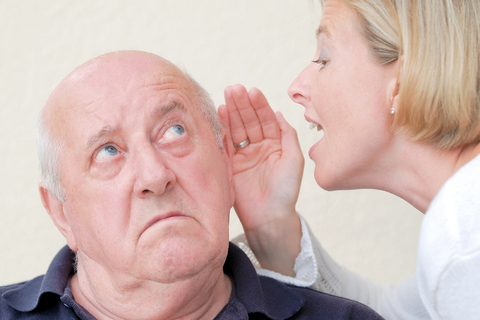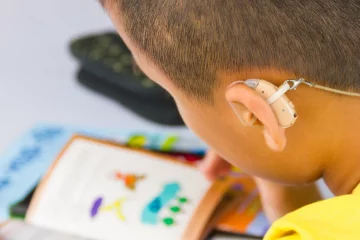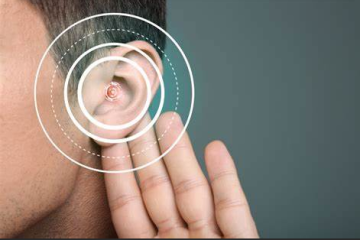As we progress through life, our bodies undergo various transformations, and our sensory capabilities are not exempt. Among the most common sensory changes experienced by many individuals is hearing loss. However, we often question whether hearing loss is an inherent part of the aging process.
This blog post delves into the realm of hearing loss, aiming to shed light on whether it can truly be deemed a natural occurrence or if other factors are at play.
Decoding Hearing Loss
Hearing loss refers to a diminished capacity to perceive sounds, varying in intensity from mild to profound. It can affect one or both ears and can manifest differently in different individuals. The two primary types of hearing loss are sensorineural and conductive.
Sensorineural Hearing Loss: This form of hearing loss is often associated with aging and stems from damage to the inner ear or the auditory nerve pathways. It stands as the most prevalent type of hearing loss and typically presents as irreversible. Factors contributing to sensorineural hearing loss include prolonged exposure to loud noises, genetic predispositions, specific medications, infections, and underlying health conditions.
Conductive Hearing Loss: Unlike sensorineural hearing loss, conductive hearing loss is often temporary and results from issues in the outer or middle ear. Common causes comprise earwax blockages, fluid accumulation due to infections, perforated eardrums, or irregularities in the ear structure. Medical intervention or surgical procedures often provide successful treatment for conductive hearing loss.
Is Hearing Loss a Natural Phenomenon?
In response to the question, hearing loss can indeed be considered a natural facet of the ageing process. Termed age-related hearing loss or presbycusis, it characterises the gradual decline in hearing acuity that occurs over time. Statistics indicate that approximately one in three individuals between the ages of 65 and 74 experience some degree of hearing loss, while nearly half of those aged 75 and above face significant hearing difficulties.

Presbycusis primarily results from wear and tear affecting the sensory cells in the inner ear. As time passes, these delicate hair cells responsible for converting sound vibrations into electrical signals deteriorate or become lost, leading to a reduced ability to perceive certain sounds.
Nonetheless, it is crucial to note that not all hearing loss can be solely attributed to aging. External factors such as exposure to loud noises, occupational hazards, specific medications, smoking, and underlying health conditions can contribute to hearing loss at any age, making it a multifaceted issue.
Prevention and Treatment
While age-related hearing loss may be an inevitable reality for many individuals, there are proactive measures that can be undertaken to safeguard hearing health and potentially delay its onset. These measures include:
Limiting exposure to loud noises: Minimise prolonged exposure to noisy environments, employ ear protection (such as earplugs or earmuffs) in settings with high noise levels, and maintain a reasonable volume when listening to music or watching television.
Regular hearing check-ups: Schedule routine hearing assessments with an audiologist to monitor hearing health and promptly address any concerns that arise.
Embracing a healthy lifestyle: Adopt a balanced diet, engage in regular physical exercise, manage chronic conditions like diabetes and high blood pressure, and refrain from smoking, all of which contribute to overall well-being, including hearing health.
Communication strategies: If hearing loss does occur, learning effective communication strategies such as facing the person speaking, requesting repetition or clarification when necessary, and utilizing assistive listening devices can significantly improve communication and enhance quality of life.
Conclusion
Hearing loss stands as a prevalent condition, particularly among older adults. While age-related hearing loss is widely accepted as a natural consequence of aging, it is crucial to acknowledge that other factors, such as exposure to loud noises and underlying health conditions, can contribute to hearing loss at any stage of life.





